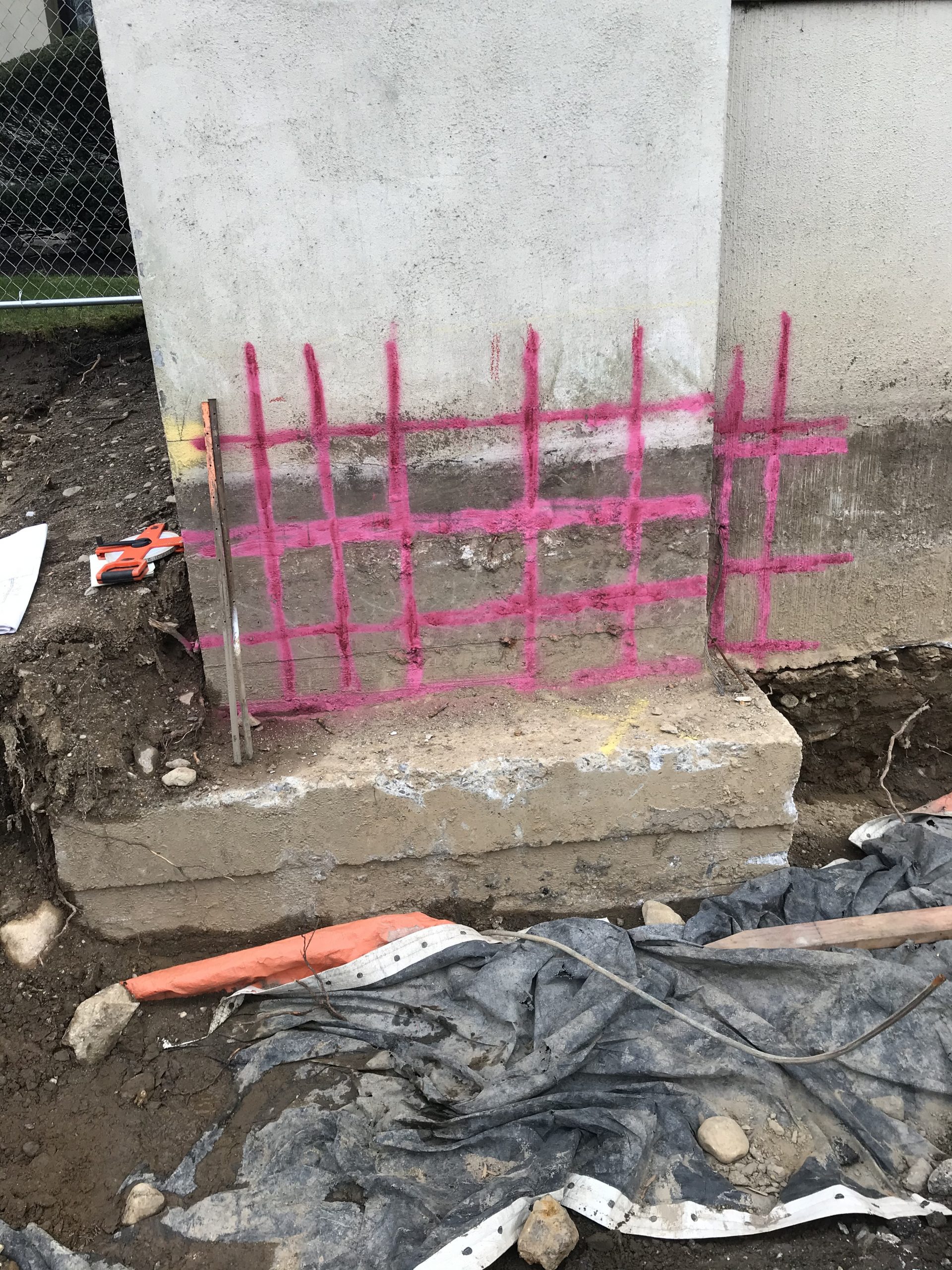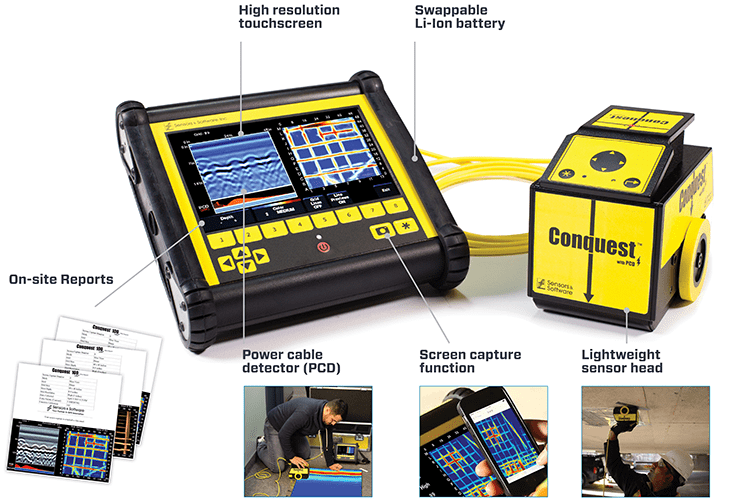Elevate Your Building Process With the Strategic Insights of Concrete Scanning for Enhanced Efficiency
In the world of contemporary building and construction methods, the mission for effectiveness and accuracy is vital. Welcoming innovative modern technologies has come to be a foundation for attaining these objectives. One such technology that has actually transformed the building and construction industry is concrete scanning. By taking advantage of the tactical understandings provided by concrete scanning, construction specialists can unlock a world of boosted productivity and structured processes. The ramifications of integrating concrete scanning go far past surface-level benefits, using an extensive impact on job outcomes.

Advantages of Concrete Scanning
Enhancing project efficiency and safety, concrete scanning offers a non-destructive approach for finding surprise things within concrete structures. By utilizing innovations such as ground-penetrating radar (GPR) and concrete x-ray imaging, building and construction teams can accurately situate rebar, post-tension wires, electrical conduits, and various other obstructions before drilling, reducing, or coring into concrete.
The benefits of concrete scanning are many. Building websites can be intricate environments, and knowing what lies below the surface area can prevent injuries and accidents.
Additionally, concrete scanning advertises overall job efficiency by avoiding and streamlining workflows rework. By recognizing potential concerns at an early stage, groups can readjust their strategies proactively, conserving time and sources over time. In essence, the adoption of concrete scanning technologies is a calculated investment that pays returns in terms of cost-effectiveness, efficiency, and security.
Technology Integration for Efficiency
Concrete scanning's capacity to streamline workflows and boost job performance can be further enhanced through critical integration of innovative technologies. By integrating Building Information Modeling (BIM) software application right into concrete scanning procedures, construction groups can attain a greater degree of accuracy and control. Additionally, the integration of Enhanced Fact (AR) technology with concrete scanning can improve on-site visualization, enabling job supervisors and workers to overlay electronic details onto the physical environment in real time.
Preventing Pricey Mistakes
How can meticulous interest to information throughout concrete scanning procedures help construction teams in protecting against pricey mistakes? Concrete scanning plays a critical function in determining possible problems before they intensify into expensive mistakes. By utilizing advanced scanning innovations such as Ground Passing Through Radar (GPR) and electro-magnetic induction, building and construction groups can accurately discover rebar, utilities, voids, and other blockages within concrete frameworks. This degree of accuracy allows project managers to make educated decisions concerning the format and style of their construction strategies, reducing the threat of accidental damage to vital infrastructure throughout the building procedure. Furthermore, concrete scanning assists in guaranteeing structural stability by identifying weak points or problems in the concrete beforehand, enabling for prompt fixings and alterations. By proactively addressing these concerns, building groups can prevent expensive errors such as rework, hold-ups, or security hazards that may occur from ignored discrepancies in the concrete framework. Inevitably, buying detailed concrete scanning procedures proves to be an affordable method in the long run, conserving both time and resources while improving general project performance and high quality.
Enhancing Job Administration
Precise interest to information during concrete scanning processes not only assists in staying clear of expensive mistakes yet also lays a solid structure for effective project management in building and construction endeavors. By incorporating concrete scanning technology into project administration approaches, construction groups can streamline workflows, enhance interaction, and guarantee that jobs remain on track.
Concrete scanning gives valuable insights right into the architectural stability of existing components, enabling project managers to make informed choices regarding design modifications or building and construction sequences. This proactive approach minimizes the threat of unexpected delays or rework, ultimately conserving time and sources. In addition, the information acquired from concrete scanning can be integrated into Building Information Modeling (BIM) platforms, enabling real-time cooperation and control among various stakeholders.
Additionally, concrete scanning assists project supervisors determine prospective hazards or barriers before they rise right into larger concerns, promoting a safer workplace for all included. With enhanced presence and precision supplied by concrete scanning innovation, project supervisors can properly intend, keep track of, and execute building and construction jobs additional hints with better performance and confidence.
Maximizing Efficiency
One vital aspect of maximizing efficiency is via the adoption of concrete scanning technology. By using ground-penetrating radar (GPR) and other scanning methods, building teams can precisely locate rebar, avenues, and various other subsurface components, decreasing the threat of expensive errors and delays during excavation and boring.
Additionally, welcoming Structure Info Modeling (BIM) software program can significantly improve efficiency by producing in-depth 3D designs that boost task visualization and control amongst different trades. BIM enables better clash detection, enabling issues to be determined and settled prior to building even begins, saving time and sources in the future.
Applying a lean building and construction approach, which concentrates on eliminating waste and maximizing effectiveness across all project stages, is one more reliable strategy for taking full advantage of efficiency. By fostering cooperation, interaction, and constant improvement, building and construction groups can function extra cohesively towards attaining job goals in a efficient and structured way.
Conclusion
In conclusion, the critical application of concrete scanning in the construction procedure offers many advantages, consisting of enhanced effectiveness, cost savings, enhanced job monitoring, and enhanced efficiency. By incorporating this innovation, building and construction teams can prevent pricey mistakes, improve their procedures, and maximize their general job result. Concrete scanning is a beneficial tool that can raise the building and construction procedure and lead to more effective and lucrative outcomes.

Comments on “Selecting the Right Concrete Scanning Tools”